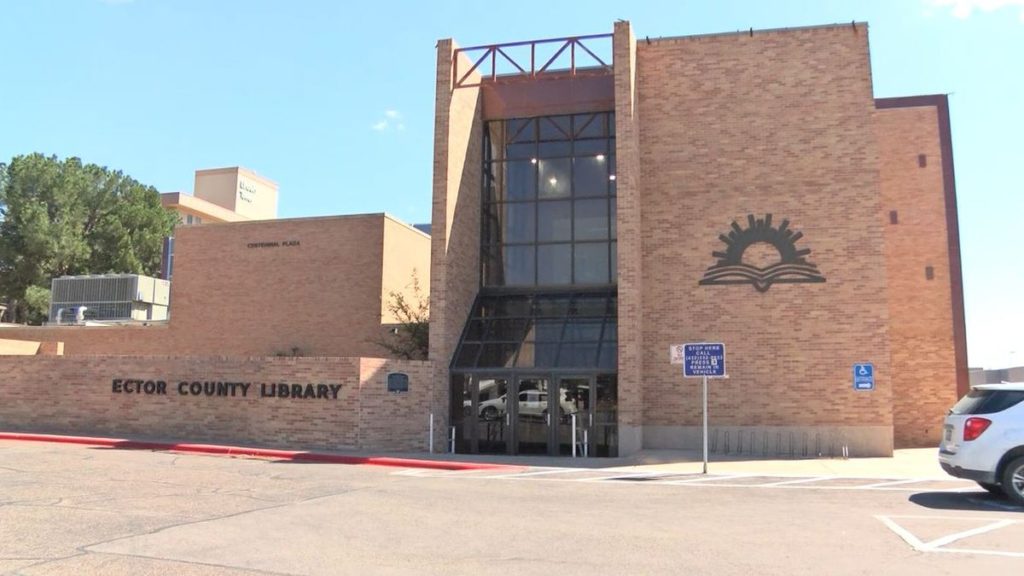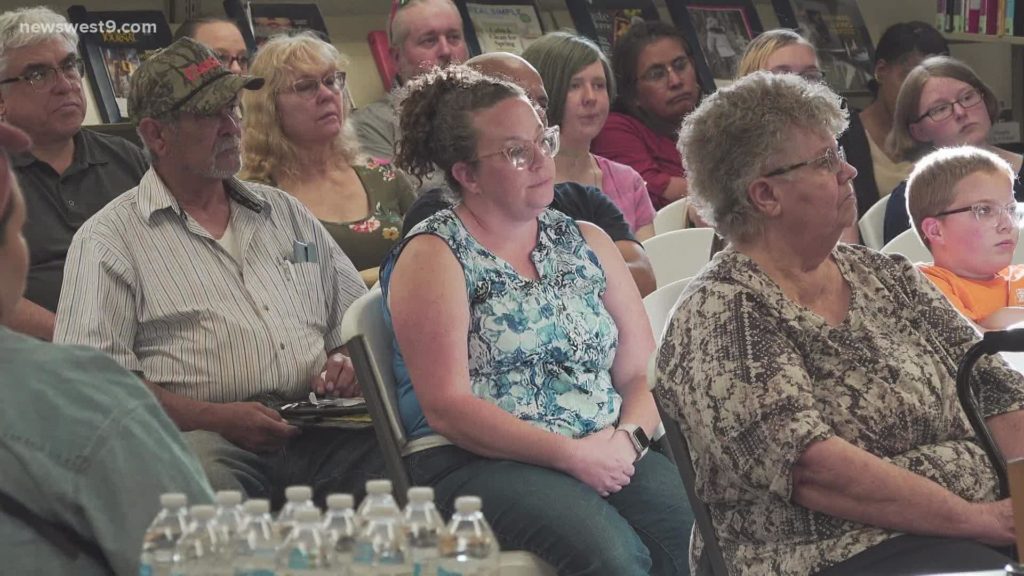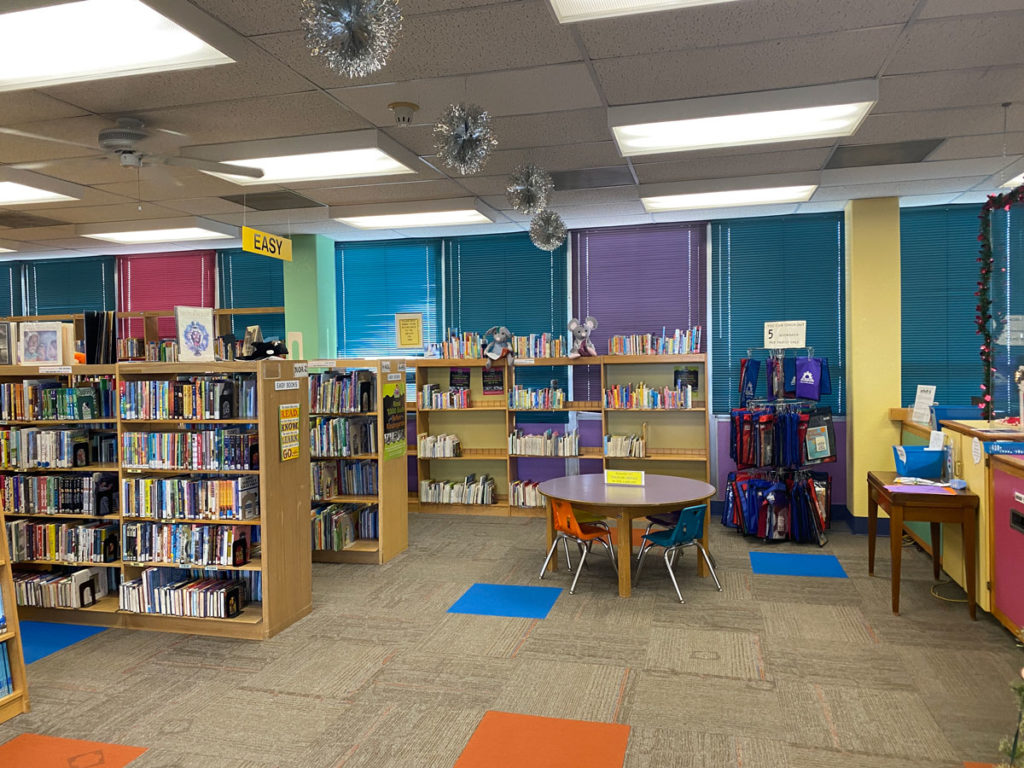A community needs assessment for Ector County Library (ECL) identified residents' constraints and aspirations, recommended responsive library offerings, and ultimately determined that the current facility is inadequate to deliver those necessary services.

Project Overview
Challenge
- The building, which had not been purpose-built as a library, was outdated and in disrepair
- The Library needed more support; there was a disconnect between the sizeable community need and the level of support the County offered to maintain or expand services
- There was instability in the Library’s governance; it had no Director, and the all-volunteer Advisory Committee, though committed and knowledgeable, held limited power
Approach
- Engage both patrons and Library non-users in multiple (and bilingual) formats, to promote accessible and representative community input
- Focus on the building as a tool to deliver services—what does it allow the Library to offer the community, and what more could it do?
Outcome
- We learned that residents want the Library to stay downtown (a big unknown at the beginning of the process)
- The Ector County Commissioners Court agreed to allow the Ector County Library to select a site for the new facility and hire an architect
- The Library Advisory Committee became a permanent Library Board, which then hired a new Director
Ector County faces economic instability, a wide digital divide, and precarious political support for the library.
Located in the Permian Basin, Ector County takes pride in its productive oil and gas fields. But the energy economy's booms and busts breed challenges.
Relative to national averages, Ector County has lower rates of educational attainment, broadband access, and health insurance, higher rates of unemployment and food insecurity, and especially high levels of population churn. The number of residents who had moved in the last year was 25% higher than the national average.
So while many people had urgent needs, the lower proportion of long-term residents was making it harder for ECL to establish community connections and regularly reach those who could most benefit from its services.
Meanwhile, the Library faced institutional challenges. Since the start of the pandemic, it had no permanent director in place, and the all-volunteer Library Advisory Committee held limited power to make changes. As with most municipal library advisory boards, the committee could only make recommendations to the County Commissioners.

The current library facility was maybe the biggest concern of all. On top of issues with Wi-Fi and insufficient meeting spaces, the building has recurrent problems with its major systems—electrical, plumbing, and HVAC. Both staff and patrons seemed to feel it was inadequate.
The county commissioners, who held the power to address this issue, naturally wanted to be careful stewards of taxpayer money. They were skeptical about the need for a new building.
Ector County Library by the Numbers
Library Locations
1
Service Area Population
166,223
Registered Users
123,855
Annual Expenditures
$1.59MM
Library staff
21.5
Legal Basis
County Government
Data reported to IMLS, 2020
The study shifted the Committee’s focus from the facility to its function within the community.
Facing all these headwinds, and determined to provide exceptional service to their community, the Library Advisory Committee reached out to The Ivy Group. They wanted professional help to determine whether the Library did in fact need a new facility and how urgently that need was felt by the community.
As the Library's stakeholders recognized the importance of getting a more complete picture of its community and of the Library's potential, the initial request for a Facility Assessment broadened to a full Community Needs Assessment.
The assessment's mission was to:
- Uncover the nuances, needs, and interests of the county's diverse population
- Build awareness of the Library's services and consensus about its goals
- Explore resident attitudes in relation to current and desired facilities
- Analyze how ECL compares to peer libraries
- Point the way forward
“We landed on The Ivy Group because they talk about a more holistic approach which is more than the bricks and mortar or repairing or rebuilding. It’s really about your staffing, your location services, and what we offer that is or could be antiquated.”
Randy Ham, Chairman for the Ector County Library Advisory Board (Source)
An inclusive engagement process solicited broad input and built consensus.
Ivy's Julia Prince and Mark Fink flew down to Ector County to begin the collaboration with ECL. As managing director and library consultant, this trip gave them the chance to meet stakeholders, get a firsthand glimpse of the community and library facility, and lay the groundwork for a fruitful collaboration.
That collaboration began with Commissioner interviews, a staff forum, and a working session with the advisory committee.
It continued through comprehensive research, utilizing the full scope of Ivy's community engagement and consulting services to solicit insights from the community. Julia and Mark were supported by in-house Library Specialist Sarah Hamfeldt, with extra support from the whole team at Ivy's Charlottesville office.
The Library Advisory Committee understood the value of our expertise and outside perspective, yet they also played an active role in the process. With guidance from Ivy, Committee members facilitated bilingual town halls and conducted community leader interviews.

By using town halls, telephone surveys, and online surveys (available in English and Spanish,) the Library made sure there were many ways for residents to make their voices heard. While many data points tend to be consistent across different forums, specific mediums can over- or under-represent demographic groups. Having multiple means of input reveals information which might otherwise be lost.
Meanwhile, connecting with community leaders built valuable relationships and consensus for the Library's mission, and helped fill gaps in resident feedback to make sure no population was being left out.
The result of this full-spectrum engagement was an especially rich trove of information from nonusers. Most libraries, ECL included, are eager to hear from residents who are not active patrons. With that feedback, they can figure out how to better serve an even wider portion of the community.
Getting in touch with nonusers let the Library answer vital questions, such as "Are there barriers to access, which the Library might remove?"
The team transformed feedback into actionable service recommendations.
All that feedback from surveys, town halls, and interviews, combined with Ivy's analysis, generated valuable insights. Julia and Mark flew down for a second visit, to hold a full day research summit with the Library Advisory Committee. Together, Ivy and the Committee identified themes from the community research and brainstormed ideas for addressing opportunities.
This summit tackled crucial, big-picture questions. What did we learn? What are we going to do about it? And how do we balance competing priorities?
Then Ivy created the full-fledged Community Needs Assessment, a report organized into three impact areas:
1
Foundational Needs
Foundational needs cover the elemental issues which impact Library access and use—from food insecurity and transportation problems to library card and Wi-Fi policies.
2
Quality of Place
Quality of place centers on the Library's spaces and offerings, and how it can better connect with and enrich the broader community experience.
3
Spanish Language Representation, Engagement, and Services
The final category encompassed the Library's avenues for better serving Spanish-speaking residents, a vital demographic given that almost half of adult county residents speak Spanish at home.
How is your space organized? Are your tools easy to access? Does your space still serve the purpose that it was originally planned for? Listen to our podcast episode on improving library space!
The entire project pulled together many strands: community input, benchmarking data, market segmentation research, and more.
In short, the assessment identified key challenges and opportunities and paired each with recommendations. These included everything from changes to library hours and collections, and new programs and partnerships with community organizations, all the way down to a bilingual storytime and specific alterations to library signage and card policies.
"A really wonderful byproduct of this study was they were able to provide us with comments and lists of all kinds of things that other libraries do that don't cost anything to implement.... We got a lot more for our money than just the report."
Library Advisory Committee member Peggy Dean (Source)
The report also focused on ways to reach the underserved, from the nitty-gritty of proven communications tactics to policy changes and new kinds of offerings to match the interests of resident nonusers.

The community demanded—and deserves—a library that offers 21st-century services to address educational, economic, technological, and cultural needs.
Finally, the assessment was able to firmly establish that updating the current facility would not suffice. While input made it clear that residents were satisfied with many Library services, they weren't happy with the building.
A third of non-users reported the state of the facility as a main reason for not using the Library. When asked for open-ended feedback, the majority of respondents discussed the facility and its issues. All sources of feedback reported that longstanding plumbing and lighting issues were keeping people away. Other common complaints ranged from the unreliable Wi-Fi to the limited or insufficient spaces for meetings, study sessions, and events.
The Library needed a new building.
Ivy Group believes that a library building should reflect specific purposes, based around community priorities. For Ector County, the most pressing concerns are opportunities for employment and education. The most important role for the Library, chosen by more than 80% of respondents, is to serve as a lifelong learning center for people of all ages.
Resident feedback spoke eloquently for a building which could not only serve as a wonderful place to check out books and magazines, but also provide workstations, gathering spaces, and a technology center.
Teens and young adults needed places to attend online classes and seek jobs and job training. Young children and their parents needed a first-rate children's area which supports exploration and play.

Almost everyone, from teens to retirees, wanted a vibrant, welcoming facility with spaces flexible enough to provide for individual needs as well as a full spectrum of community interactions, from chance encounters to classes, game nights, and performances.
There are many technical aspects of a successful new facility, like square footage, room layout, and the number and placement of electrical outlets. At least as important is the collective vision which arises from the assessment: a lively community hub ready to meet the future.
"The city really needs to look to get us a brand new facility to bring us into the new era of technology while holding on to the ideas of reading a good old fashioned book. It should exude a sense of excitement for young children and adults just to see the building and encourage our community to want to be part of it."
Online Survey Respondent
Ector County Library is already striding forward.
The project had done a lot to generate awareness and consensus. Now one last push was in order.
Julia made a dynamic presentation to the county's Commissioners, bringing the report's findings to life and making a persuasive appeal on behalf of community needs—especially that need for a new building.
Following the completed project, ECL and Ector County are looking forward.
As the Library works to implement many of the exciting ideas in the assessment, stakeholders also have their eyes on addressing their biggest long-term need. Their next steps:
- Identify a potential site for the new facility
- Perform a feasibility study
- Talk to engineers and architects about the building’s desired functions
With a new Library Director, and with an energized staff and community, the Ector County Library's future is looking bright.
"Oh, we were elated. We were just thrilled because we were ready to have to fight to get this and what was great was seeing how supportive the commissioner's court was and that they recognized the need for a new library as well. So, it's not just the community coming up and saying that we need a new library, it's the commissioner understanding what we have is not acceptable in the community right now."
Randy Ham, Chairman for the Ector County Library Advisory Board (Source)
Category: Library Work
Tags: libraries, research